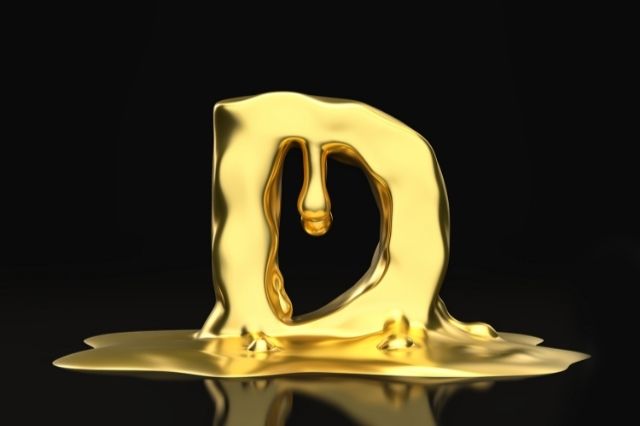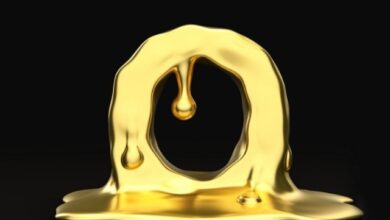340 Verbs That Start with D [with Definitions and Examples]

Verbs that start with D are included in this article. There are numerous verbs starting with D that you use on a daily basis. But there are also numerous verbs beginning with D that you don’t even know to exist. It’s nuts, don’t you think? It is impossible to complete any writing project without using verbs that start with D.
Verbs are what help complete a sentence properly and make sense. I have probably used verbs countless times while writing this article. Want to know something interesting about the letter D? The military marks important operations as well as invasions with D as a placeholder. Fascinating, right?
This article contains a list of verbs that start with D that you may use on a different basis. Some of the verbs that start with D to describe a person are also included.
Table of Contents
Verbs That Start with D You Always Use
I am sure you definitely use verbs on a daily basis whether it is to read, write, or speak. These are some verbs that start with D that you may always use and are familiar with.
1. Draw
● Definition: to make lines, pictures, or figures with a writing device
● Synonyms: sketch, depict, etch
● Example: Lisa did the best she could to draw a map on a small piece of paper.
2. Do
● Definition: perform (an action, the precise nature of which is often unspecified)
● Synonyms: discharge, execute, perform
● Example: I have done my task.
3. Decline
● Definition: to refuse something
● Synonyms: reject, turn down, refuse
● Example: I invited him, but he declined.
4. Die
● Definition: to stop living
● Synonyms: abate, cease, perish
● Example: I should die of happiness!
5. Drive
● Definition: to operate a vehicle
● Synonyms: operate, steer, maneuver
● Example: Did you let Tom drive your car?
6. Drink
● Definition: to bring into the mouth and swallow
● Synonyms: imbibe, sip, gulp
● Example: She can drink milk like a real baby.
7. Divide
● Definition: to separate into two or more parts
● Synonyms: part, cut up, partition
● Example: Tom divided the bread into two pieces.
8. Delete
● Definition: to remove or cancel something
● Synonyms: erase, cross out, remove
● Example: I can’t figure out how to delete what I just posted.
9. Dwell
● Definition: to live in or at a specified place
● Synonyms: reside, live
● Example: Surely you dwell here or in one of these surrounding towns.
10. Depend
● Definition: to rely on
● Synonyms: count on, trust, bank on
● Example: If I need any help, I can always depend on Josh.
Verbs That Start with D You Usually Use
Verbs are an inseparable part of our everyday life, don’t you think? Here are some verbs starting with D that we all usually end up using and are quite familiar with as well.
1. Dip
● Definition: to moisten; to put or let something down quickly or briefly in or into (liquid)
● Synonyms: immerse, submerge
● Example: He dipped a brush in the paint.
2. Deny
● Definition: state that one refuses to admit the truth or existence of
● Synonyms: rebuff, veto, withhold
● Example: Carmen couldn’t deny that fact.
3. Deliver
● Definition: to bring to someone
● Synonyms: transport, transfer, distribute
● Example: He took the opportunity to deliver us another snub.
4. Decide
● Definition: to conclude, settle, or make a choice
● Synonyms: settle, determine, deem
● Example: I hope you decide to take the job.
5. Deal
● Definition: take part in commercial trading of a particular commodity.
● Synonyms: supply, offer, trade-in
● Example: The cards were dealt for the last hand.
6. Describe
● Definition: to give details about something to someone
● Synonyms: characterize, portray, depict
● Example: Words can hardly describe the beauty of the scene.
7. Direct
● Definition: to supervise, manage, or point toward
● Synonyms: guide, steer, lead
● Example: He directed me on how to do the task.
8. Discuss
● Definition: to talk about and consider all aspects
● Synonyms: talk, address, consider
● Example: You should discuss this with your parents before you make any decision.
9. Disable
● Definition: to make something not work that was working before
● Synonyms: incapacitate, cripple, turn off
● Example: You could always wait a few weeks or so to see if they disable the security.
10. Disagree
● Definition: to have a different opinion
● Synonyms: antagonize, object, oppose
● Example: If we disagree, we do so privately.
Verbs That Start with D You Often Use
We always have some words that use less than others. Just like that, there are some words that we often use but not on a regular basis. These are some of those verbs starting with D.
1. Dedicate
● Definition: to commit to something for a specific use or goal
● Synonyms: devote, apply, allot
● Example: A person could dedicate his life to understanding just one suggestion.
2. Defeat
● Definition: win a victory over (someone) in a battle or other contest; overcome or beat
● Synonyms: beat, conquer
● Example: Taran can defeat him.
3. Distill
● Definition: to purify (a liquid) by heating it so that it vaporizes, then cooling and condensing the vapor and collecting the resulting liquid
● Synonyms: purify, refine, filter
● Example: They distill the whiskey from malted barley.
4. Demonstrate
● Definition: give a practical exhibition and explanation of (how a machine, skill, or craftworks or is performed)
● Synonyms: express, illustrate, make clear
● Example: I tried to demonstrate the panic I felt.
5. Declare
● Definition: to say something in a solemn and emphatic manner
● Synonyms: assert, announce, proclaim
● Example: I have nothing to declare.
6. Damage
● Definition: inflict physical harm on (something) so as to impair its value, usefulness, or normal function
● Synonyms: ruin, wreck, harm
● Example: The car was badly damaged in the accident.
7. Dare
● Definition: to challenge someone to do something that requires courage
● Synonyms: challenge, confront, provoke
● Example: She dared to go inside the haunted house.
8. Dance
● Definition: move rhythmically to music, typically following a set sequence of steps
● Synonyms: step, tread, glide
● Example: I like the song, but it’s really hard to dance to.
9. Decrease
● Definition: make or become smaller or fewer in size, amount, intensity, or degree
● Synonyms: lessen, diminish, abate
● Example: The population of the area has decreased radically.
10. Disappear
● Definition: to no longer be able to be seen
● Synonyms: vanish, fade, cease
● Example: He watched the wolf disappear into the tall grass.
Verbs That Start with D You Sometimes Use
We all have those words that pop up in our minds from time to time, right? Here are some verbs beginning with D that you might sometimes end up using.
1. Derive
● Definition: to come from, to be created from
● Synonyms: originate, arise, descend
● Example: The traditions of the Somalis derive them from the same region.
2. Dab
● Definition: press against (something) lightly several times with a piece of absorbent material in order to clean or dry it or to apply a substance
● Synonyms: pat, press, touch
● Example: He dabbed his mouth with his napkin.
3. Discover
● Definition: to find unexpectedly or during a search
● Synonyms: learn, ascertain, uncover
● Example: She discovered herself alone in the morning.
4. Display
● Definition: put (something) in a prominent place in order that it may readily be seen
● Synonyms: exhibit, present, layout
● Example: The palace used to display a series of tapestries
5. Dally
● Definition: to act or move slowly
● Synonyms: delay, lag
● Example: Don’t dally, though you only have one minute per turn.
6. Download
● Definition: copy (data) from one computer system to another, typically over the internet
● Synonyms: move, transfer, unload
● Example: Could you download a file for me?
7. Drop
● Definition: to cause something to fall down to the ground
● Synonyms: lower, drop, trickle
● Example: The spoon dropped with a clatter from her hand
8. Drain
● Definition: to make something empty or dry by removing the liquid from it
● Synonyms: deplete, empty, trench
● Example: He said he was going to drain all my blood out.
9. Distribute
● Definition: give a share or a unit of (something) to each of a number of recipients
● Synonyms: allot, dispense, dole
● Example: Could you please distribute the answer sheets while I hand out the tests?
10. Determine
● Definition: ascertain or establish exactly by research or calculation
● Synonyms: ascertain, learn, discover
● Example: She couldn’t determine if she’d won this round or not.
Verbs That Start with D You Occasionally Use
There are certain verbs that are not that common, so we end up using them occasionally. These are some verb words that start with D that you occasionally use.
1. Deploy
● Definition: to get into combat position
● Synonyms: marshall, station, fan-out
● Example: They plan to deploy more American soldiers over the next six months.
2. Desire
● Definition: to wish for or crave something
● Synonyms: want, crave, covet
● Example: He never achieved the status he desired.
3. Destroy
● Definition: to damage, ruin, or spoil something beyond repair
● Synonyms: annihilate, demolish, exterminate
● Example: We must destroy it.
4. Detect
● Definition: to uncover or sense something previously hidden
● Synonyms: identity, discover, distinguish
● Example: The inquisitors at once began to detect errors.
5. Diagnose
● Definition: to identify a problem or disease
● Synonyms: determine, pinpoint, analyze
● Example: The doctor was unable to diagnose the skin condition.
6. Differ
● Definition: be unlike or dissimilar, to disagree
● Synonyms: disagree, vary
● Example: The women differ from the men.
7. Dig
● Definition: break up and move earth with a tool or machine, or with hands
● Synonyms: exhume, mine, excavate
● Example: You would have to dig up the plant yourself.
8. Deepen
● Definition: make or become deep or deeper
● Synonyms: grow, intensify
● Example: She glanced up quickly, feeling the color deepen in her face.
9. Decoct
● Definition: extract the essence from (something) by heating or boiling it
● Synonyms: boil, extract
● Example: Young red oaken leaves decocted in wine make an excellent gargle for a sore mouth.
10. Drag
● Definition: to pull or move someone or something
● Synonyms: tow, pull, move
● Example: Don’t drag me into this.
Verbs That Start with D You Seldom Use
These are some verbs that start with the letter D that you seldom use. Read this article when you are out of words and might need some help to use some verbs for your writing.
1. Deem
● Definition: to believe or judge
● Synonyms: regard, consider, think
● Example: It’s hard to know what later generations will deem to be art.
2. Disclose
● Definition: to make something known or reveal something
● Synonyms: confess, reveal, unveil
● Example: But this man knows the truth and, if he wished to, could disclose it to me.
3. Dabble
● Definition: take part in an activity in a casual or superficial way
● Synonyms: participate, dip into
● Example: He began to dabble in music but failed to wow either his teachers or audiences at the talent contests in which he took part.
4. Dandle
● Definition: move (a baby or young child) up and down in a playful or affectionate way
● Synonyms: bounce, jiggle, pet
● Example: She dandled the baby to make him stop crying.
5. Dangle
● Definition: to hang or swing loosely
● Synonyms: hanging, swing
● Example: Let your arms dangle at your sides.
6. Dawdle
● Definition: waste time or be slow
● Synonyms: idle, delay
● Example: If you prefer not to dawdle, you’ll need to do your homework first.
7. Deafen
● Definition: cause (someone) to lose the power of hearing permanently or temporarily
● Synonyms: deaf, stun
● Example: The impact was close enough to deafen her to everything but her own breathing.
8. Dash
● Definition: to run or travel somewhere in a great hurry
● Synonyms: rush, race, run
● Example: I dashed into the garden.
9. Dazzle
● Definition: (of bright light) blind (a person or their eyes) temporarily
● Synonyms: blindness, deprive of sight
● Example: She was dazzled by the headlights.
10. Deaden
● Definition: make (a noise or sensation) less strong or intense
● Synonyms: benumb, paralyze, blunt
● Example: He was given drugs to deaden the pain.
Verbs That Start with D You Rarely Use
Some verbs are not as commonly used so there are many people who don’t even know they exist. Then here are some of those D-verbs that you might rarely use.
1. Daub
● Definition: carelessly coat or smear (a surface) with a thick or sticky substance
● Synonyms: bedaub, smear
● Example: Don’t daub your paint on like that.
2. Debase
● Definition: reduce (something) in quality or value; degrade
● Synonyms: degrade, devalue
● Example: Of course, I did not debase myself by peeping into the letter.
3. Debauch
● Definition: destroy or debase the moral purity of; corrupt
● Synonyms: corrupt, debase, deprave
● Example: Bad companions had debauched the young girl.
4. Debilitate
● Definition: make (someone) very weak and infirm
● Synonyms: weakening, enervating
● Example: The troops were severely debilitated by hunger and disease.
5. Debunk
● Definition: expose the falseness or hollowness of (an idea or belief)
● Synonyms: explode, expose
● Example: They listen to the claims of paranormal activity and do their best to debunk them.
6. Decant
● Definition: gradually pour (wine, port, or another liquid) from one container into another, typically in order to separate out sediment
● Synonyms: pour out, transfer, discharge
● Example: The bottles were uncorked, and the wine was decanted an hour before the meal.
7. Decapitate
● Definition: cut off the head of (someone)
● Synonyms: behead, guillotine, decollate
● Example: The two young nobles, after a mock trial, were decapitated.
8. Decimate
● Definition: kill, destroy, or remove a large proportion of
● Synonyms: extinguish, eliminate, wipe out, kill
● Example: Half the population of his planet had been decimated by famine and war.
9. Decipher
● Definition: convert (a text written in code or a coded signal) into normal language.
● Synonyms: decode, solve, translate
● Example: She was able to decipher some of it after all the tests she’d been through.
10. Decry
● Definition: to strongly criticize somebody/something, especially publicly
● Synonyms: condemn, denounce, blame
● Example: Critics who decry regulatory costs are dismissed as deluded apologists for corporate rapacity.
Positive Verbs That Start with D
There are so many positive words that start with D that we might need from time to time. Then here are some positive verbs that might help you when needed.
1. Dignify
● Definition: make (something) seem worthy and impressive
● Synonyms: honor, grace, adorn
● Example: He said he wouldn’t dignify his opponents’ accusations by responding to them.
2. Deserve
● Definition: to be worthy of or qualified for
● Synonyms: earn, merit, warrant
● Example: Our guests deserve a quiet and peaceful visit.
3. Delight
● Definition: to give somebody a lot of pleasure and joy
● Synonyms: charm, gladden
● Example: An experience guaranteed to delight both young and old.
4. Decorate
● Definition: to make (something) look more attractive by adding extra items or images to it
● Synonyms: adorn, furnish, beautify
● Example: Mosaics are employed to decorate the spandrels of the arches.
5. Doll
● Definition: to dress someone smartly and attractively
● Synonyms: dress up, attractive
● Example: We used to doll ourselves up and go into town.
6. Deck
● Definition: to decorate or adorn brightly or festively
● Synonyms: adorn, decorate, beautify
● Example: She wanted to deck her mirror image.
7. Devote
● Definition: to give all or most of one’s time or resources to (a person or activity)
● Synonyms: commit, assign, sacrifice
● Example: He’s devoted most of his time to his painting.
8. Defend
● Definition: resist an attack made on (someone or something); protect from harm or danger
● Synonyms: shield, avert, shelter
● Example: The father was seriously injured trying to defend his son from a vicious dog.
9. Develop
● Definition: to grow or become more advanced
● Synonyms: mature, evolve, advance
● Example: They were already beginning to develop different personalities.
10. Donate
● Definition: to give, especially to a philanthropic cause
● Synonyms: bequeath, bestow, grant
● Example: People are encouraged to donate blood.
Verbs That Start with D – Full List (340 words)
- Dab
- Dabble
- Dam
- Damage
- Damascene
- Damn
- Dampen
- Dance
- Dandle
- Dangle
- Dare
- Darken
- Dash
- Date
- Daub
- Dawdle
- Dawn
- Daydream
- Dazzle
- Deaden
- Deafen
- Deal
- Debase
- Debate
- Debauch
- Debilitate
- Debit
- Debunk
- Decamp
- Decant
- Decapitate
- Decay
- Decease
- Deceive
- Decentralize
- Decide
- Decimalize
- Decimate
- Decipher
- Declaim
- Declare
- Decline
- Declutch
- Decode
- Decompose
- Decompress
- Decongest
- Decorate
- Decrease
- Decree
- Decrest
- Decry
- Dedicate
- Deduce
- Deduct
- Deem
- Deepen
- Defame
- Defeat
- Defecate
- Defect
- Defend
- Defer
- Define
- Deflagrate
- Deflate
- Deflect
- Deflower
- Defoliate
- Deforest
- Deform
- Defraud
- Defray
- Defreeze
- Defy
- Degenerate
- Degrade
- Dehorn
- Dehumanize
- Dehydrate
- Deify
- Deign
- Delay
- Delegate
- Delete
- Deliberate
- Delight
- Delimit
- Delineate
- Deliver
- Delouse
- Delude
- Delve
- Demagnetize
- Demand
- Dematerialize
- Demobilize
- Democratize
- Demolish
- Demonstrate
- Demoralize
- Demote
- Demystify
- Denationalize
- Denature
- Denigrate
- Denominate
- Denote
- Denouce
- Denounce
- Dent
- Denude
- Deny
- Deoxidize
- Depart
- Depend
- Depict
- Depilate
- Deplete
- Deplore
- Deploy
- Depopulate
- Deport
- Depose
- Deposit
- Deprave
- Depreciate
- Depress
- Deprive
- Derail
- Derive
- Derogate
- Descend
- Describe
- Desecrate
- Desert
- Deserve
- Design
- Desire
- Despatch
- Despoil
- Despond
- Destroy
- Destruct
- Detach
- Detail
- Detain
- Detect
- Deteriorate
- Determine
- Detest
- Dethrone
- Detonate
- Detoxicate
- Devalue
- Devastate
- Develop
- Deviate
- Devise
- Devitalize
- Devolve
- Devote
- Devour
- Diagnose
- Dial
- Dialogue
- Dialyse
- Dictate
- Diddle
- Die
- Differ
- Differentiate
- Diffract
- Diffuse
- Dig
- Dilapidate
- Dilate
- Dilute
- Dim
- Diminish
- Dine
- Dip
- Direct
- Dirty
- Disable
- Disabuse
- Disagree
- Disappear
- Disappoint
- Disapprove
- Disarm
- Disarticulate
- Disband
- Disburse
- Discard
- Discern
- Discharge
- Discipline
- Disclaim
- Disclose
- Discolor
- Discompose
- Disconcert
- Disconnect
- Discontinue
- Discount
- Discourage
- Discourse
- Discover
- Discredit
- Discriminate
- Discrown
- Discuss
- Disdain
- Disembark
- Disembowel
- Disenchant
- Disengage
- Disentagle
- Disentangle
- Disfigure
- Disgorge
- Disgrace
- Disguise
- Disgust
- Dish
- Dishevel
- Dishonour
- Disillusion
- Disinfect
- Disinherit
- Disintegrate
- Disjoint
- Dislocate
- Dismantle
- Dismast
- Dismay
- Dismember
- Dismiss
- Dismount
- Disobey
- Disorganize
- Disorient
- Disorientate
- Disown
- Disparage
- Dispatch
- Dispense
- Disperse
- Displace
- Displant
- Display
- Displease
- Dispose
- Dispossess
- Disprove
- Dispute
- Disqualify
- Disregard
- Disrupt
- Dissatisfy
- Dissect
- Disseminate
- Dissent
- Dissipate
- Dissociate
- Dissolve
- Dissuade
- Distend
- Distil
- Distill
- Distinguish
- Distort
- Distract
- Distress
- Distribute
- Distrust
- Disturb
- Disunite
- Dive
- Diverge
- Diversify
- Divert
- Divide
- Divorce
- Divulge
- Do
- Document
- Dodder
- Dodge
- Dogmatize
- Dole
- Domesticate
- Dominate
- Don
- Donate
- Dope
- Dot
- Dote
- Double
- Doubt
- Download
- Doze
- Draft
- Drag
- Drain
- Dramatize
- Drape
- Draw
- Dread
- Dream
- Dredge
- Drench
- Dress
- Dribble
- Drift
- Drill
- Drink
- Drip
- Drive
- Drivel
- Drizzle
- Drone
- Droop
- Drop
- Drown
- Drowse
- Drug
- Drum
- Dry
- Duck
- Dull
- Dumb
- Dumbfound
- Dump
- Dupe
- Duplicate
- Dust
- Dwell
- Dye
Final Thoughts on Verbs That Start with D
Congratulations on finishing the article. What do you think? Did you find some new verbs starting with D? There are hundreds of verbs that we might not be aware of. After reading this article containing verbs beginning with D, I hope you learned at least one new word. There are some words that are not as common as others, and so they are rarely used. On the contrary, there are some verbs that start with D and are very commonly known to everyone.
Hope you enjoyed reading this article. Come back to it if you are ever in need of some verbs that start with D.
Ps. See also positive words that start with D, adjectives that start with D and nouns that start with D.




